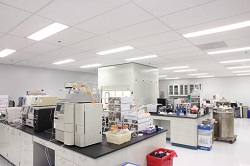The sterile injectables business holds a lot of promise for drugmakers with the manufacturing capabilities to produce the difficult-to-make drugs, so a lot of companies have been buying capacity and expertise around the world. Deals announced Wednesday by Pfizer ($PFE) and Sun Pharma were proof positive of how companies think they can cash in on the generics piece of this sterile injectables market.
Pfizer said Wednesday that it would buy New Jersey-based InnoPharma for $225 million in cash and up to $135 million in contingent milestone payments. InnoPharma has 10 drugs already approved by the FDA, 19 more filed with the FDA and more than 30 injectable and ophthalmic products under development. Pfizer said that the 9-year-old company specializes in the really tricky products, in treatment areas such as cancer and central nervous system disorders, that need complex manufacturing capabilities or have particularly challenging bioequivalency requirements. Pfizer's Global Established Pharma unit already has 44 products with over 190 presentations that it sells in the U.S.
Sun Pharmaceutical said in a two-sentence announcement Wednesday that it had bought Pharmalucence. Not only did it not disclose the terms of the deal, it didn't disclose anything, except that "Pharmalucence has sterile injectable capacity in the US, supported by strong R&D capabilities."
 |
| Pharmalucence expects its new 70,000-square-foot production facility to be operational by the end of the year.--Courtesy of Pharmalucence |
But according to the Pharmalucence website, the company has a focus on radiopharmaceuticals, with several FDA-approved products. It has a new corporate headquarters in Billerica, MA, and a 70,000-square-foot facility awaiting FDA approval that it expects to have operational by the end of this year. The company says it has 100 employees and does contract and private-label formulation development and manufacturing of noncytotoxic human injectables in either liquid or lyophilized form.
With sterile injectables becoming a much more significant part of the pharma market, drugmakers are building or buying capacity and expertise for the tricky-to-manufacture drugs. India's Lupin said in February that it would buy Netherlands-based Nanomi for an undisclosed sum to be in a position to "make significant inroads into the niche area of complex injectables."
The deal came two weeks after Par Pharmaceuticals' Jan. 21 announcement that it would pay $490 million to pick up JHP Pharmaceuticals, a specialist in manufacturing sterile injectable drugs. More recently, Jordan-based Hikma said it would spend up to $300 million to buy Bedford Laboratories, the generic injectable drug unit of Boehringer Ingelheim. And in the biggest deal in recent years, Mylan ($MYL) paid last year $1.75 billion to buy Agila Specialties, the sterile injectable business of India's Strides Arcolab.
The Sun deal comes only three months after the company announced it would acquire the troubled Ranbaxy Laboratories in a $3.2 billion stock deal with Japan's Daiichi Sankyo, which controls more than 60% of Ranbaxy, and with the other shareholders who own most of the rest of its shares.
- here's the Pfizer announcement
- and the Sun Pharma announcement